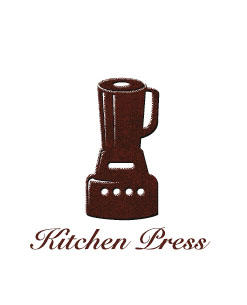The Anger Scale, by Katie Degentesh, Combo Books, 2006.
The Anger Scale, Katie Degentesh’s first collection of poems, is another offering from the Flarflist Collective . Each poem in the book, Degentesh explains, “is titled with a question from the MMPI, or Minnesota Multiphasic Personality Inventory, a psychological test consisting of 566 true/false questions that has been the benchmark for determining people’s mental pathologies as well as their fitness for court trials and military service since the 1930s. Updated in 1989, the MMPI-2 is still relied upon for the same purposes today.” The title of each poem is a question from the MMPI. Degentesh wrote the poems “by feeding phrases from the statements into internet search engines and piecing the poems together from the results pages.”
In one sense, then, the poems in The Anger Scale are definitely Flarf. In a way, though, they aren’t, or at least are a departure from Flarf as it is typically defined. Degentesh’s poems don’t really adhere to the common definition of Flarf as “A kind of corrosive, cute, or cloying, awfulness. Wrong. Un-P.C. Out of control. ‘Not okay.’” They do, however, “take unexpected turns,” and are “jarring,” often brilliantly so (The Flarf Files).
That aside, the major accomplishment of The Anger Scale is its deft exploration of the two machines of hierarchy it puts into conversation—Google and the MMPI. Just as the MMPI is used to determine people’s mental pathologies and competencies, Google does something similar to web sites. A site that ranks well on Google will be seen by end-users as more “fit” to provide them the information they are searching for.
Degentesh’s poems are filled with the subtleties of this dichotomy. Take, for example, the opening stanza of the wonderful “I Loved My Father”:
I loved my father and I loved Jesus.
What was I to do?
I felt like a canoe
That was being pulled apart by two strong men
Dichotomies abound—between the self and other, the domestic and the spiritual. And in tone. This poem, on the one hand, is very tongue-in-cheek, ironic, absurd and funny. On the other, it can be read as genuine and kind of heartbreaking. (The same can be said for basically all the poems in The Anger Scale.) The speaker is someone we can at once sympathize with and laugh at, and when we do so we are also sympathizing with and laughing at ourselves.
Any book based on criteria used to tell us who and what we are psychologically, how we rank as human beings, must be as equally absurd as the questions asked to determine that ranking, but at the same time actually reveal something about us. When you get past all the nuances in tone, the unexpected turns and linguistic jarring, what you end up with in “I Loved My Father” is a sense of the inherent cruelty in being in any type of human relationship, and a reminder that much of the way we define and redefine ourselves is often in opposition to the people and forces that surround us. The poem concludes:
He looked at me and knew I had stolen it.
A man will be hated by his own family.
I hated Listerine and I hated my father.
I do not know whether he is alive or not.
I took what I wanted, and left him spoiled behind me.
I was reborn in Ireland, in 1753.
Of course, not every poem in The Anger Scale is a hit. On a poem by poem basis, that is disappointing, but does not detract too much from the book as a whole. More than anything, The Anger Scale is an innovation. It not only stakes out new poetic territory, but also is, to my mind, doing something new within the Flarf movement itself, rather brilliantly challenging and expanding on the ways Flarf has thus far been defined.
--Justin Marks

